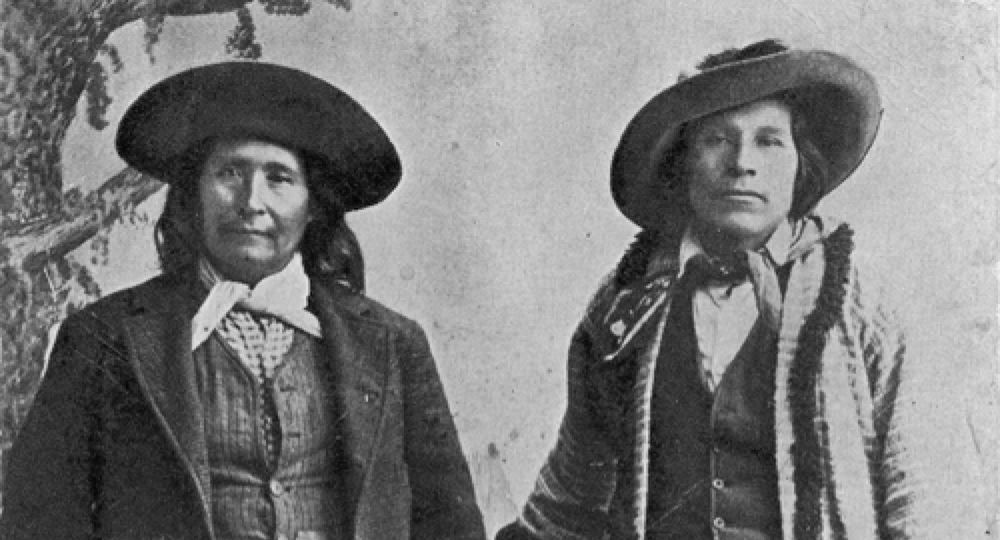
Money for Nothing
💸 ...and chicks for free · Confederate seal loses appeal · Choctaw Confederates · Critical Race Theory Conference · Much more!
Good afternoon, everyone.
If you’re a Pamphleteer regular, you’ve probably read enough about transit to make your eyes bleed. We focus so incessantly on it because it was the main plank of Mayor Freddie O’Connell’s campaign, and since taking office, he hasn’t stopped campaigning. We’ve yet to see the real mayor emerge as so much of his agenda hinges on November’s vote and his time in office so far has been defined by his campaigning for its passage.
That’s all well and good, but most of the opposition to the transit plan isn’t based on the particulars—to which the plan’s ardent supporters draw your focus at the exclusion of everything else. Instead, many locals see it as completely misaligned with their needs and desires. There are keystone issues plaguing the city of Nashville—namely a shaky hold on public safety and crumbling public schools, neither of which involve public transit.
Expanding the bus lines, building sidewalks, and updating traffic signals are all benign endeavors on their own, but instituting a regressive approach to make it all happen sort of flies in the face of the mayor’s “we want you to stay” mantra. If you want people to stay, all you have to do is not increase taxes and take care of the basics—you know, like education and public safety.
What the plan seems to really seek is access to more federal funding. The pursuit of federal funding (which is less accountable at the granular level to the taxpayer than local or even state funds) creates a perverse incentive wherein initiatives like this bus plan seek consensus only in order to gain access to federal dollars that Metro can spend without really worrying about having the popular mandate of the city’s residents.
Much like the city planners of the mid-twentieth century who pursued disruptive and ambitious “urban renewal” projects, this new class of transit-obsessed urban revivalists pursue programs with a less earthy ardor but an equally narrow focus on getting the job done, irrespective of whether or not the programs are popular.
Speaking to how such efforts to superficially prop up a city tend to sour rather than enliven the population, Anton Cabelo writes for Palladium:
Cleveland’s leading black newspaper, Call and Post, for example, stated that black Americans would be the “number one” beneficiary of urban renewal in 1955. But as James Baldwin realized while filming Take This Hammer in 1963, the results on the ground proved otherwise. Visiting the “urban renewal” of the black Western Addition neighborhood in San Francisco, California, which displaced some 20,000 people, he recounted speaking to an uprooted teenager who told him, “I’ve got no country, I’ve got no flag,” to which Baldwin added in his telling, “I couldn’t say you do. I don’t have any evidence to prove that he does.”
No doubt, the promoters of the plan see it as a way to rescue lower-income residents and minorities from their plight. And taken at face value, it is not nearly as disruptive as displacing residents. But what this plan really opens the door to is a perverse incentive structure that is unaccountable to taxpayers in Nashville. Once those wheels start rolling, they ain’t gonna stop, regardless of how many people are riding the bus.
Onward.
⧖⧗⧖ SHOW YOUR SUPPORT ⧗⧖⧗
If you want to support The Pamphleteer, a recurring donation is the best way. We have a $10/month Grub Street tier and a $50/month Bard tier. Membership gets you access to our comments section and free access to upcoming events.

🏛️ Confederate Seal Loses Appeal This Thursday, after a protracted legal battle between the Tennessee Historical Commission and the Sons of Confederate Veterans, Davidson County Chancellor Patricia Head Moskal approved Williamson County's request to remove the Confederate flag from its seal. In 2020, Williamson County’s commission recommended that it should be removed; two years later, the Tennessee Historical Commission concurred, stating that the seal, which had been in place since 1968, was not an official historic memorial. Then, in December 2022, the Major Nathaniel Cheairs Camp 2138 Sons of Confederate Veterans filed a complaint, claiming that the seal was protecte under the 2013 Tennessee Heritage Protection Act.
Critics of Confederate symbolism celebrated the decision as a victory; Williamson County officials reportedly plan to replace the seal with one that represents “the diversity of the county." But attorney Edward Phillips, who represents the seal’s defenders, believes it is possible to appeal the decisions and compromise with those claiming it is racist. "I think the best way to have done it would have been this, to modify that section and ... [this could] represent the history better because there were Unionists in Williamson County and there were some Unionists in Nashville," Phillips said.
Mondal’s decision comes on the heels of the Historical Commission’s previous resolution to keep Middle Tennessee State University from changing the name of Nathan Bedford Forrest from one of its buildings, Forrest Hall. The commission previously approved the removal of a Forrest bust from the state capital in July 2021. TYLER HUMMEL
📖 Critical Race Theory Conference According to the Nashville Scene, civil rights activists see Tennessee as a key battleground state to tackle issues such as “book burning” and “racial equity.” At the beginning of the month, The African American Policy Forum met at the Scarritt Bennett Center for its fifth annual Critical Race Theory Summer School. Featuring anti-racist luminaries such as Kimberlé Crenshaw, Jason Stanley, and Tim Wise, the conference’s theme was “No U-Turn on Racial Justice,” with strategies and workshops concerning the misapplication of CRT and how it has been used to roll back racial equity. In attendance was Nashville’s own Rep. Justin Jones.
“This is the tip of the spear,” said Crenshaw during the event. “Tennessee is the home of [Nathan Bedford] Forrest and the home of Ida B. Wells. It's the home of the Ku Klux Klan and the Nashville Student Movement. We're at a place where these dynamics are so robust and rich. Sometimes the dynamics of discrimination and oppression are also the same sites where resistance is deeply rooted in the soil.” TYLER HUMMEL
🗑️ Vandalism in Franklin Last week, vandals decoratively damaged the Carothers Parkway bridge, and Franklin police are struggling to find the person responsible. On August 7th, the unknown individual(s) dislodged nearly 100 decorative parapet caps and threw them into the river, causing thousands of dollars in damage to public and private property. The act didn’t have a clear motive but could result in a Class A misdemeanor or Class B felony to the responsible parties. Crime Stoppers of Williamson County is offering a reward of $1,000 to anyone with information that leads to an arrest. TYLER HUMMEL
DEVELOPMENT

- Japanese restaurant and vinyl listening lounge to open at JW Marriott (NBJ)
- Germantown Café owners to open new Nashville restaurant this fall (NBJ)
- Murfreesboro brewery to close (Post)
- Work looms on mixed-use project in The Nations (Post)
- Arnold's sister restaurant eyed for city’s north side (Post)

✹ BOOK REVIEW: CHOCTAW CONFEDERATES

It is often said that history is a lie agreed upon. Frequently, it is a series of half-truths that benefit the ruling parties of history. In recent years, this narrative has been predominantly understood through the lenses of intersectionality. Axiomatically, the Confederacy was evil, slavery was evil, and the Antebellum South was a haven of cruel white supremacist hegemons.
These truths are taken for granted and often misapplied in modern politics as fault lines form between productive southern states and a resentful federal government, which enjoys casually threatening air strikes against Second Amendment supporters and melting down historic statues.
The moral rigidity of modern narratives surrounding the history of the South makes the recent publishing of a book like Choctaw Confederates: The American Civil War in Indian Country fascinating. Its title is conceding something unintentionally transgressive. Absent white supremacy, multiple Native American groups perpetuated the evils of slavery entirely on their terms. To quote the chief of the Choctaw Nation in 1864, their tribes’ destiny was “indissolubly involved in that of the South. By the side of our Confederate friends, we must stand or we must fall.”

THINGS TO DO
View our calendar for the week here and our weekly film rundown here.
📅 Visit our On The Radar list to find upcoming events around Nashville.
🎧 On Spotify: Pamphleteer's Picks, a playlist of our favorite bands in town this week.
👨🏻🌾 Check out our Nashville farmer's market guide and yearly festival guide.
TONIGHT
🎸 SLASH – S.E.R.P.E.N.T. Festival @ FirstBank Amphitheater, 6:15, $30+, Info
+ feat. Larkin Poe, ZZ Ward and Robert Randolph
🎸 Buddy Guy @ Schermerhorn Symphony Center, 7:30p, $ 76+, Info
🎸 The Gaslight Anthem @ Marathon Music Works, 7p, $58.64+, Info
🎸 The Juliana Theory @ The Basement East, 7p, $38.02, Info
🪕 Bluegrass Night @ The American Legion Post 82, 7p, Free, Info

📰 Check out the full newsletter archive here.





